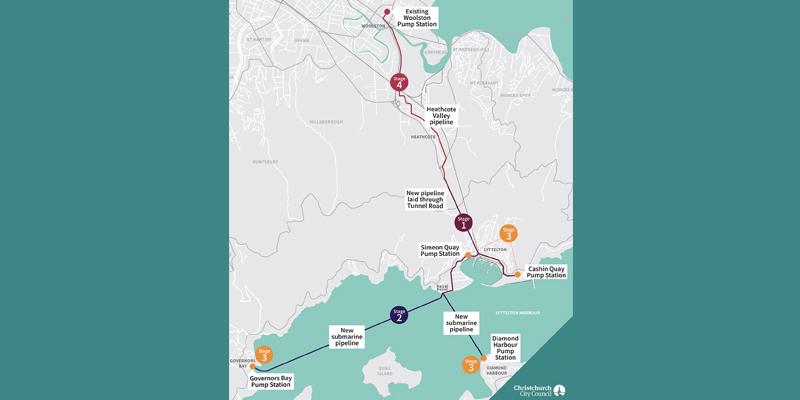A new pump station is now pumping all of Governors Bay’s treated wastewater – an average of 136,000 litres per day – through a new submarine pipeline to Lyttelton.
At Lyttelton it is being treated temporarily at the Cashin Quay pump station until the $53 million Lyttelton Harbour Wastewater Project is completed early next year.
Christchurch City Council City Services General Manager David Adamson said the Lyttelton Harbour Wastewater Project will put an end to the routine discharge of treated wastewater into Lyttelton Harbour.
“The commissioning of the Governors Bay pump station is a fantastic milestone and another step closer to cleaner water in Lyttelton Harbour. The Lyttelton Harbour Wastewater Project will improve wastewater services in Lyttelton, Governors Bay and Diamond Harbour, an end goal we’re all committed to.”
Up until now wastewater from Lyttelton, Governors Bay and Diamond Harbour has been treated at wastewater treatment plants in each of the townships before being discharged through outfall pipelines into Lyttelton Harbour.
Under the new scheme, existing wastewater treatment plants at Cashin Quay, Governors Bay and Diamond Harbour are being converted into pump stations to pipe all of Lyttelton Harbour’s wastewater through the Lyttelton Tunnel.
The Council is working with Environment Canterbury, Te Hapū o Ngāti Wheke, Te Rūnanga o Ngāi Tahu and Lyttelton Port Company and harbour communities to improve water quality in Lyttelton Harbour as part of the Waka-Ora Healthy Harbour Plan.
You can download the Whaka-Ora Healthy Harbour – Whakaraupō/Lyttelton Harbour catchment management
plan HERE






